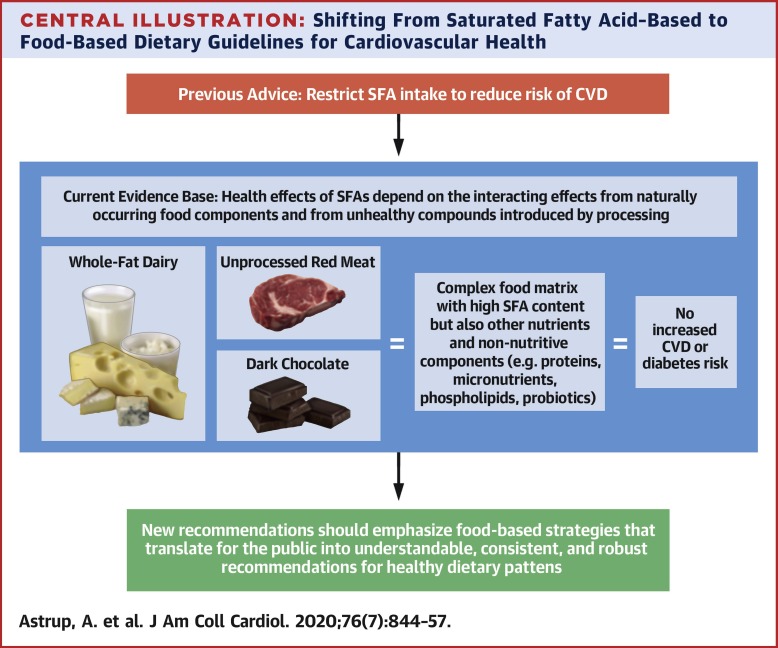We include products in articles we think are useful for our readers. If you buy products or services through links on our website, we may earn a small commission.
Carnivore Diet for Fertility: How and Why it Works
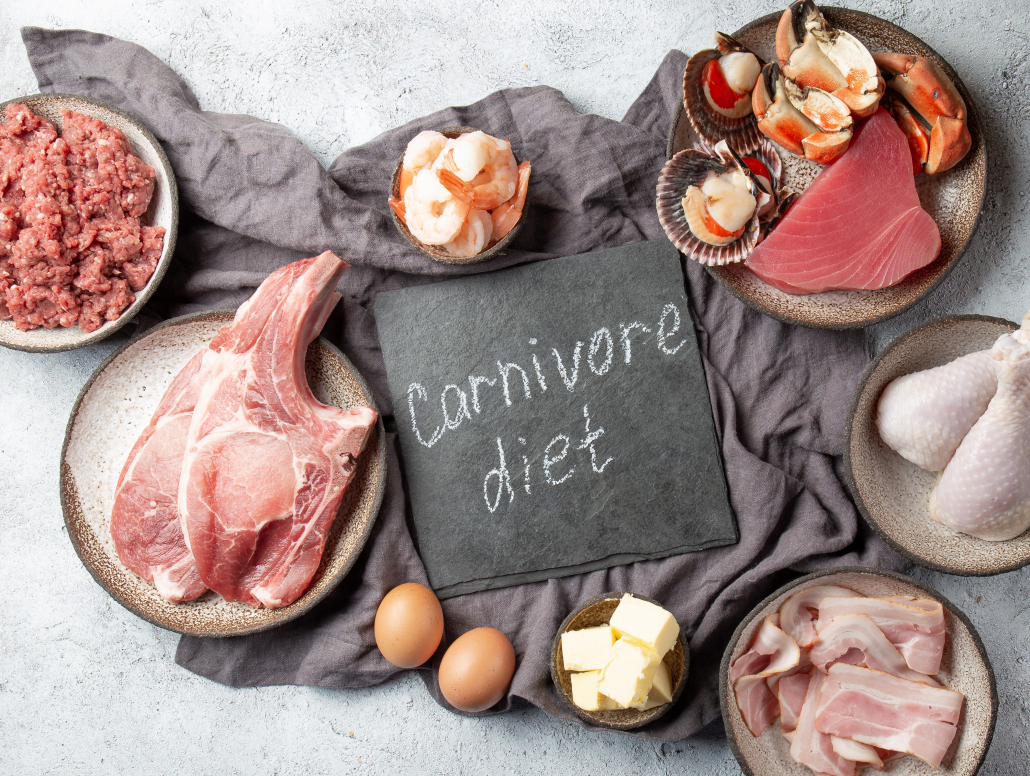
Infertility affects around 20% percent of the population, including both men and women. The carnivore diet for fertility targets factors that inhibit infertility while boosting factors that promote fertility.
A Carnivore diet improves fertility through three overarching mechanisms:
- By reducing inflammation
- Improving hormone function
- Providing essential and hard-to-get fertility-boosting nutrients
In this article, we’ll explore just how the carnivore diet improves fertility.
Table of Contents
Carnivore Diet For Fertility: Fast Facts
The carnivore diet supports fertility through various mechanisms, including:
- Eliminating inflammatory processed foods loaded with sugars and irritating additives
- Eliminating grains, legumes, and starches that contain inflammatory and cell-damaging plant toxins like lectins, phytohormones, phytoalexins and other harmful plant defense mechanisms
- Reducing excess fiber that ferments in the gut causes excess heat, and inflammation in the nearby reproductive organs
- Reducing inflammatory polyunsaturated fatty acids (PUFAs) found in seed oils.
- Nourishing your cells with monounsaturated and saturated animal fats.
- Dramatically increasing essential and vital nutrient intake from nutrient-dense fertility superfoods like beef liver, salmon roe, and other organ meats
What is the Carnivore Diet for Fertility?
The carnivore diet is an all-meat diet centered on fatty meat, full-fat dairy, and eggs. It eliminates all non-animal foods, including grains, sugars, fruits, vegetables, and processed foods.
This makes carnivore a version of the high-fat, low-carb ketogenic diet.
At first glance, the carnivore way of eating may appear extreme since it runs contrary to mainstream nutritional advice to eat a variety of plant foods.
However, there are hundreds of lines of historical evidence showing that humans evolved on a diet of fatty meat for nearly 2 million years until the dawn of the agricultural revolution around 8,000 years ago. 3
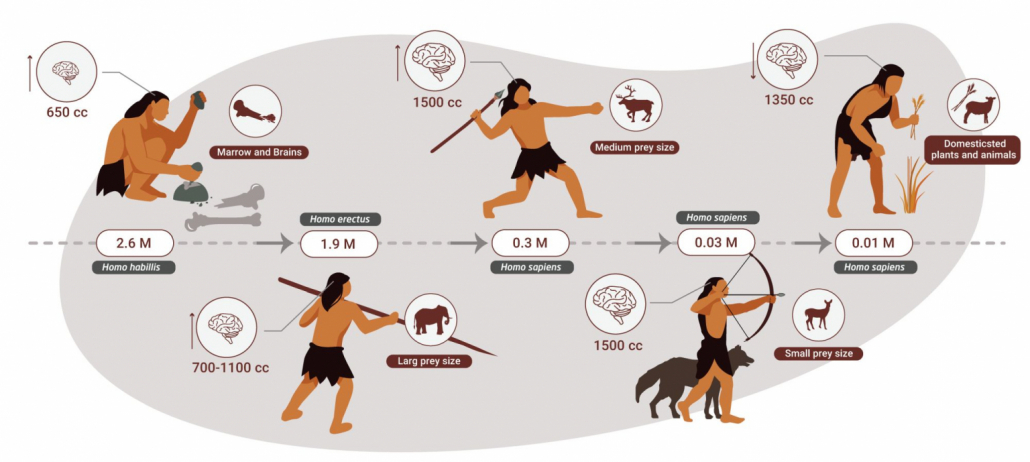
Source: Dr Miki Ben Dor
The carnivore diet for fertility is a way of realigning our physiology with the foods we evolved to thrive on.
Thousands of modern humans have adopted this ancestral way of eating with dramatic results.
Early studies show that the carnivore diet may be remarkably effective in helping people overcome various diseases, reduce inflammation, and ultimately reclaim their metabolic health.
Does the Carnivore Diet Work?
Recent studies from Harvard and Revero have reported powerful benefits for thousands of participants.
Strikingly, these studies report that a carnivore diet can resolve numerous diseases, reduce medication use, improve gastrointestinal conditions, boost mental health, clear up skin conditions, and promote weight loss. 2
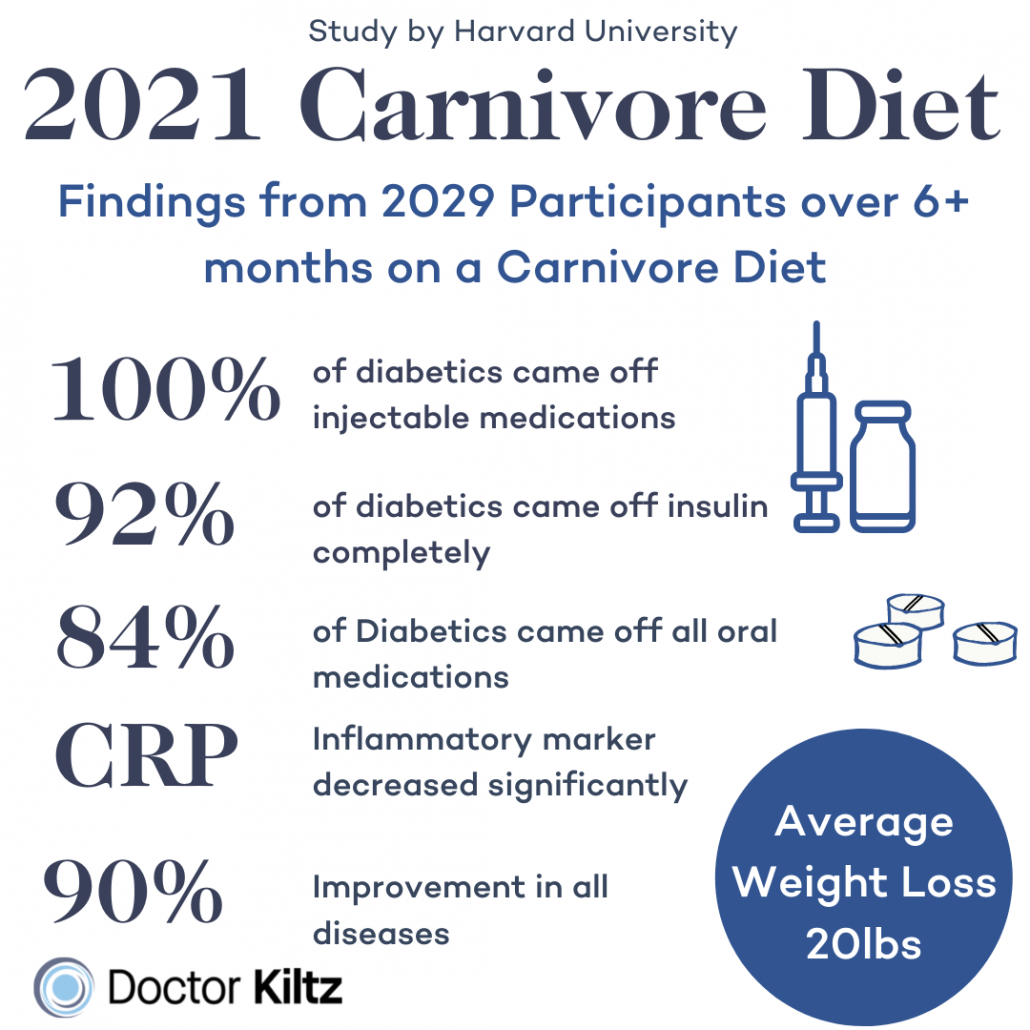
In 2021 Harvard University researchers Dr. Belinda Lennerz and Dr. David Ludwig collected responses from 2,029 carnivore dieters over 6 months. [4] The researchers concluded: “Contrary to common expectations, adults consuming a carnivore diet experienced few adverse effects and instead reported health benefits and high satisfaction.” [1]
The significant improvements inlcuded:
- 93% improved or resolved obesity and excess weight
- 93% improved hypertension
- 98% improved conditions related to diabetes
- 97% improved gastrointestinal symptoms
- 96% improved psychiatric symptoms
When I look at Western diets and lifestyles, I’m not surprised that infertility affects approximately 1/8 of the population. And it doesn’t discriminate across any demographic or ethnic boundary, including sex. While infertility is often seen as a “women’s issue,” the data tells us differently: Approximately ⅓ of infertility cases are deemed to be caused by just the female partner, ⅓ caused solely by the male partner, and ⅓ caused by a combination of both partners.
A carnivore diet will enhance fertility for both men and women.
How Long Does it Take?
While the carnivore diet for fertility can have near-immediate impacts, sperm and eggs both take about 70-90 days to develop. [3] [4]
To get the full spectrum of benefits from your fertility diet it’s important to stick with it.
Let’s get started!
The Philosophy Behind Carnivore For Fertility
Renowned fertility doctor and founder of CNY fertility, Dr. Robert Kiltz, identifies inflammation as the number one cause of infertility, followed by hormone imbalance and lack of important fertility-boosting nutrients. All of these factors are due to our modern Western diet and lifestyle.
Let’s explore the role of inflammation in fertility and how the carnivore diet works to reduce it.
Reduces Inflammation
Inflammation is a natural response to infection or injury.
When our body’s immune response is functioning properly, inflammation is temporary. It turns on when we need it, and off again once we are healed.
Inflammation evolved as an essential process for our survival in the absence of modern medications like antibiotics. But when it doesn’t turn off, inflammation simmers at a chronic level, damaging healthy cells instead of healing damaged cells.
This cellular damage sends signals that keep the inflammation switch turned on, locking your body in a brutal cycle that can lead to problems that impact fertility like:
- hydrosalpinx (a condition in which fallopian tubes get blocked with a watery fluid)
- reduced blood flow to reproductive organs that restricts nutrient delivery to developing eggs, sperm, and uterine lining
This cycle of chronic inflammation is one of the main reasons why treatments like antibiotics, steroids, aspirin, and heparin, along with immune modulators like intralipids, and IVIG, are often used in conjunction with fertility treatments. Each is aimed at controlling and reducing inflammatory immune responses.
While these drugs have their place in a fertility clinic, a well-formulated carnivore diet can naturally reduce inflammation while helping you reset your immune system in a sustainable way that makes drugs irrelevant.
I often say, “My goal is to put doctors like me out of business.” A carnivore diet is the most powerful way for you to take control of your fertility.
How the Carnivore Diet for Fertility Reduces Inflammation
Now that we know what inflammation is and why it’s so bad for fertility, let’s take a deeper look at the four ways that a carnivore diet reduces inflammation:
- Reduces inflammatory sugar intake
- Reduces inflammatory fiber intake
- Reduces inflammatory plant toxins
- Increases healthy fats that protect against inflammation
Let’s go over how each of these processes work.
Reduces sugar
Numerous studies point to sugar as a cause of inflammation.
But sugar hides in foods that we’ve been told are healthy. All carbs are sugar.
When you follow the recommended diet of 3 meals a day based on high-carb plant foods like grains and fruits, you are consuming chronically high amounts of sugar.
If you’re consuming a standard American diet, you’re consuming 50-65% carbs, around 15- 20% protein, and 10-20% fat.
Carbs from grains, vegetables, and fruits are aiming a steady stream of glucose through your whole body, setting in motion a series of damaging chemical reactions that:
- raise stress hormones
- causes inflammatory reactions
- deplete minerals and endogenous antioxidants that would otherwise protect against inflammation
Glycation
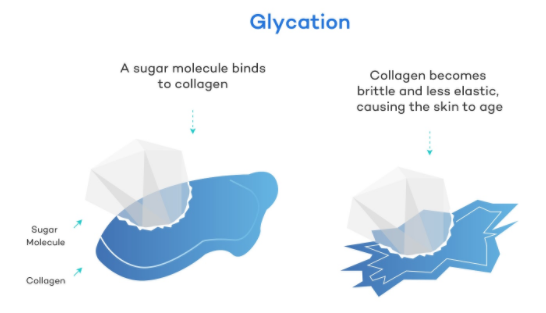
One of the main ways glucose damages cells is by a process called glycation.
Consuming high amounts of carbs causes sugar molecules to bind with other proteins and cellular structures in a process called glycation. Glycation produces “advanced glycation end products” (AGEs).
Glycation damages connective tissue and creates chronic inflammation.3
While AGEs cause inflammation by binding to cell receptors called AGE receptors or RAGE. 5
As levels of oxidative stress increase, more glycation occurs, forming more AGEs.
Studies show that RAGE binding and high levels of oxidative stress are associated with many diseases that directly contribute to infertility including PCOS and endometriosis. 7
A carnivore diet cuts off the fuel (sugar) for the production of new AGEs, while allowing your body to expel accumulated AGE. 5
Reduces Fiber
A carnivore diet significantly reduces insoluble fiber.
When you chew fiber, you expose it to bacteria and yeasts that feed on it during the process of digestion. The ensuing fermentation produces heat, gas, aldehyde, alcohol, and methane. Heat from this exothermic reaction damages local organs and tissues.
Dr. Kiltz’s observations as a fertility doctor lead him to believe that the fiber fermenting in our bowels spreads heat and inflammation to tissue and organs throughout the entire lower abdominal region, including our tubes, ovaries, uterus, prostate, seminal vesicles, and testicles.
This is critical because our reproductive organs are designed to function at a very specific body temperature and can be damaged by heat.
That’s why all fertility doctors advise men against sitting in Jacuzzis and hot baths. While you’re probably familiar with the idea that sperm require a very precise temperature that’s lower than body temperature to remain healthy (the reason men have reproductive organs outside the main body), eggs do too.
Optimal temperature for egg development happens to be at body temperature–37 degrees celsius or 98.6 fahrenheit.. But when excessive fermentation takes place right beside the ovaries, the temperature can rise substantially above optimal conditions for egg development.
Needing Fiber is a Myth
Mainstream recommendations for fiber stem from studies that show fiber can moderately reduce blood sugar spikes.
This is a benefit ony when you’re eating a diet that’s high in carbs and added sugars.
Still need convincing? Let’s look at some recent mainstream studies examining the real effects of fiber on our gastrointestinal systems.
The authors of a 2012 study published in the World Journal of Gastroenterology looking at the effects on fiber on constipation found, “the previous strongly-held belief that the application of dietary fiber to help constipation is but a myth. Our study shows a very strong correlation between improving constipation and its associated symptoms after stopping dietary fiber intake.”
A bellweather review of over 35 studies looking at the link between fiber and colon health, concluded that: “A strong case cannot be made for a protective effect of dietary fiber against colorectal polyp or cancer. Neither has fiber been found to be useful in chronic constipation and irritable bowel syndrome. It is also not useful in the treatment of perianal conditions. The fiber deficit-diverticulosis theory should also be challenged…we often choose to believe a lie, as a lie repeated often enough by enough people becomes accepted as the truth.The authors urge clinicians to keep an open mind about fiber. One must be aware of the truths and myths about fiber before recommending it.” 6
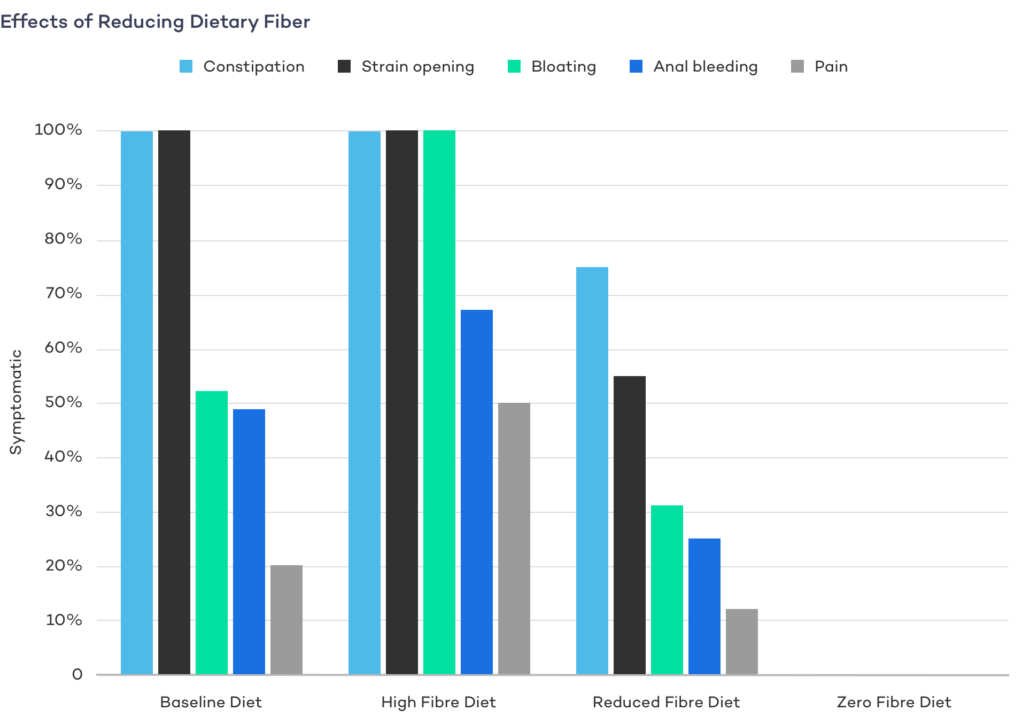
From a carnivore diet perspective, animals meant to eat fibrous plant foods can ferment plant fibers into fatty acids.
In order to do this, herbivore digestive tracts have different stomachs containing microbes that digest fiber into short-chain fatty acids.
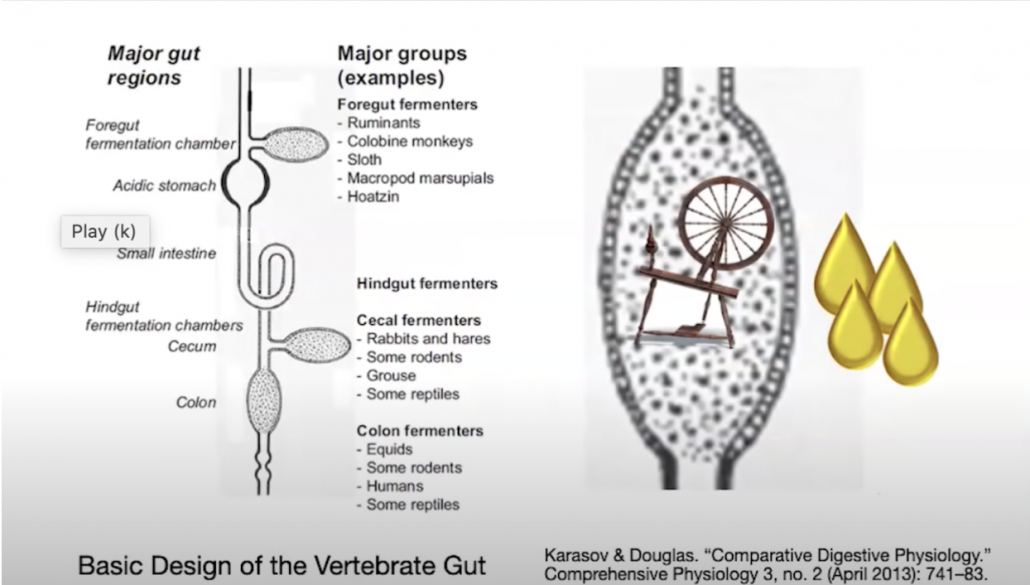
Source: Amber O’Hearn
Reduces Inflammatory Plant Toxins
By eliminating plant foods on a carnivore diet, you are eliminating the plant toxins they contain.
Without fists, fangs, and feet to protect themselves from predators, plants evolved an arsenal of chemical defense mechanisms to protect them from threats like fungus, mold, and predators.
Plant toxins include naturally occurring pesticides, mineral chelators, and antibiotics.
A single plant can contain chemical defenses that destroy cells by exploding their membranes, enzymes that inhibit your ability to digest nutrients, and oxidative toxins that fracture strands of DNA.
Common plant foods like soy contain phytoestrogens evolved to reduce fertility in the herbivores that eat them in order to drive down their populations.
Researchers estimate that we consume about 1.5 grams of natural pesticides every day. This works out to nearly 10,000 times more natural pesticides than synthetic compounds. [18]
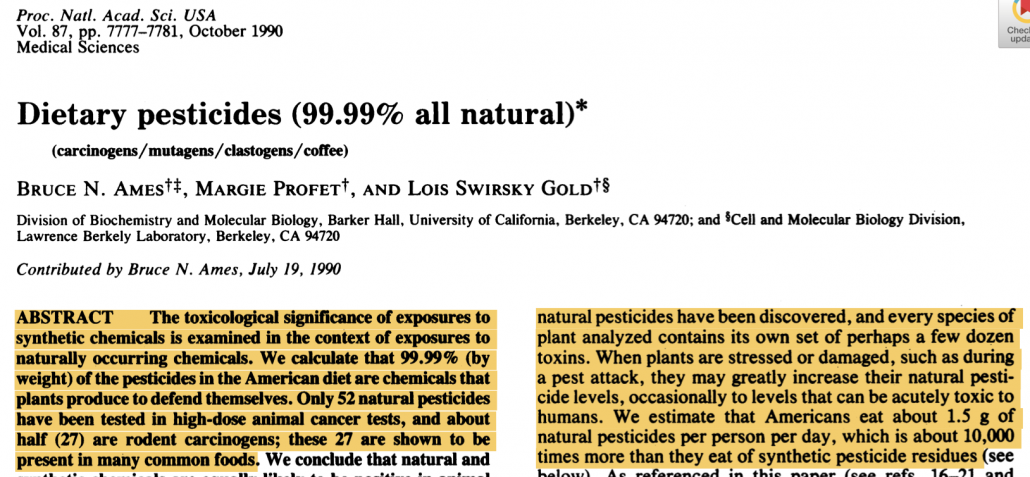
These toxins are not just found in obscure tropical fruits and vegetables. For example millions of people are all too familiar with the toxic effects of gluten in wheat implicated in intestinal permeability, or “leaky gut.”
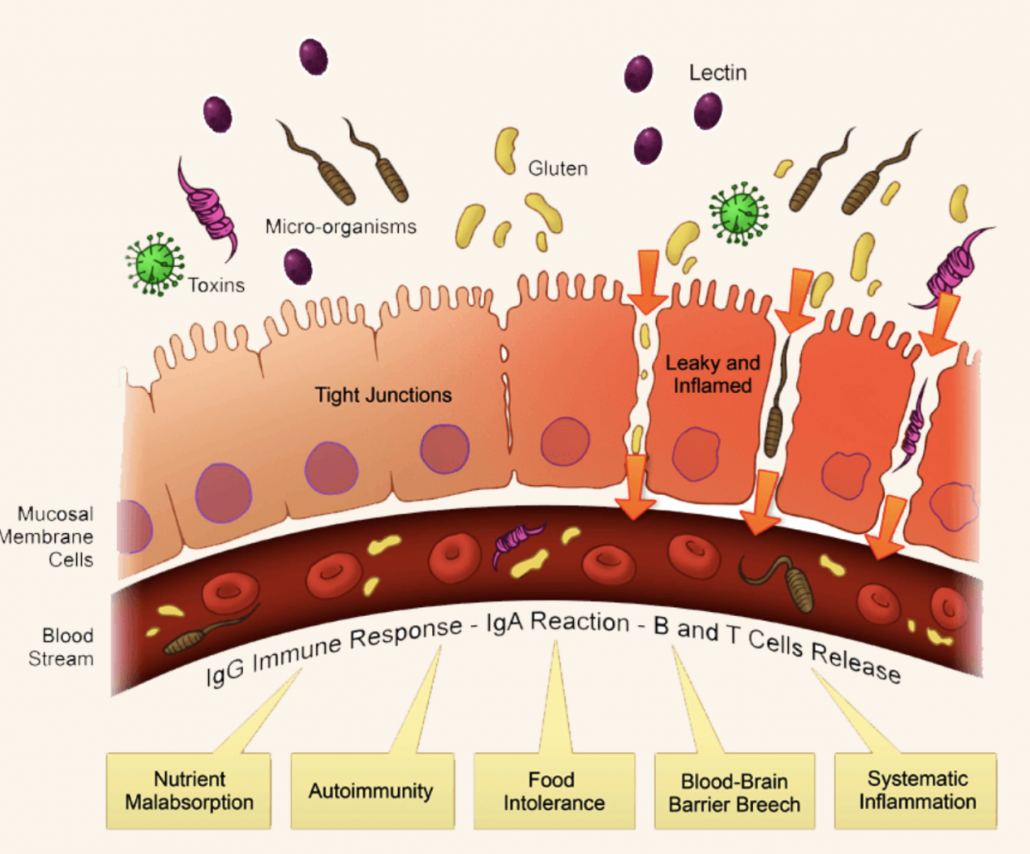
The list below shows the natural pesticides contained by common grocery store staples. Regular consuption of these foods exposes your body to chronic low doses of toxins.
Fats Protect Your Body From Inflammation
Eating healthy fats is one of the most powerful things you can do to reduce inflammation and increase fertility.
Recent studies show that when women undergoing IVF increase healthy fats in their diet, they have a corresponding increase in implantation and pregnancy rates.
Saturated fats and monounsaturated fats–the kind of fat you get from animal foods play important roles in the body that support fertility and overall health.
Benefits of healthy fats on a carnivore diet for fertility:
- monounsaturated fat has powerful anti-inflammatory properties and may reduce the risk of heart disease [45] [46]
- It takes a balance of both saturated and unsaturated fats to compose and properly maintain your cell membranes.
- The fatty acid called conjugated linoleic acid (CLA) has been shown to support immune function, strengthen bones, support heart health, improve excess fat loss, and dramatically reduce the risk of certain cancers. 5 10 11 12
- For calcium to be effectively incorporated into your bones, at least 50% of dietary fats should be saturated
- Omega-3 fatty acids that you get in abundance from fatty fish and lamb protect against harmful gut bacteria and reduce inflammation. 4
Hormones
Hormones are chemical messengers that orchestrate many of the body’s biological processes, including reproduction.
In fact, hormones are so important to the reproductive process that the formal title of a fertility doctor is a reproductive endocrinologist.
A carnivore diet for fertility regulates reproductive hormones by:
- providing your body with cholesterol–the building blocks of hormones
- reducing your intake of plant toxins that mimic reproductive hormones
- mitigating the effects of hyperinsulinemia on hormones by dramatically restricting sugar consumption
Hormone Synthesis
Several of the most important reproductive hormones, including estrogen, progesterone, and testosterone, all derive from cholesterol.
In addition to playing such a vital role in steroid hormone synthesis, cholesterol is also required for your body to make vitamin D from sunlight.
Vitamin D is unique in that it’s both a vitamin and a hormone. Sufficient vitamin D is strongly correlated with better fertility. [45]
Furthermore, cholesterol intake has been associated with greater intelligence, positivity, and general mental health. [47] [48]
Cholesterol also plays a critical role in helping your body synthesize Vitamin D from sunlight. Vitamin D is an essential micronutrient that plays an important role in both male and female fertility and pregnancy.
In the past, cholesterol had been incorrectly linked with various health problems–but new research tells us that for most people, the cholesterol we get from food has negligible effects on blood cholesterol levels.
This modern understanding of cholesterol as both harmless and beneficial is reflected in the fact that there is no longer a recommended upper limit on cholesterol consumption.
Your liver makes around 70% of your cholesterol. There are many cholesterol-hungry parts of your body, especially your brain, which can “steal” the cholesterol you need for fertility if you’re not getting enough in your diet.
Hormone Regulation
Eating a lower carbohydrate diet also prevents insulin from embalancing reproductive hormones.
Hyperinsulinemia, or chronically high insulin, can cause the ovaries to make testosterone instead of estrogen and contribute to PCOS. [49]
PCOS is also correlated with obesity, type 2 diabetes, gestational diabetes, and cholesterol problems. [50] It’s not a coincidence that all these problems have been linked to chronically high carb consumption.
Since high carbohydrate intake triggers insulin release, following a low-carb carnivore diet is an effective way to lower baseline insulin levels.
A 2018 study showed that every PCOS patient who switched to a high-fat, low-carb diet regained regular menstruation and ovulation. Half of these patients were then able to get pregnant naturally — without needing any additional fertility treatments. [51]
Phytomimicry: Hormone Disturbances
A carnivore diet for fertility virtually eliminates exposure to hormone-mimicking plant substances — notably phytoestrogens.
Foods that are high in phytoestrogens (like soy) have been correlated with decreased fertility in both men and women. [52] [53]
Other plants have estrogenic activity, including[54] :
- flax seeds
- sesame seeds
- Oats
- Wheat
- Beans
- Rice
- Alfalfa
- Rye
- Barley
- Apples
- carrots.
Foods to Increase Fertility
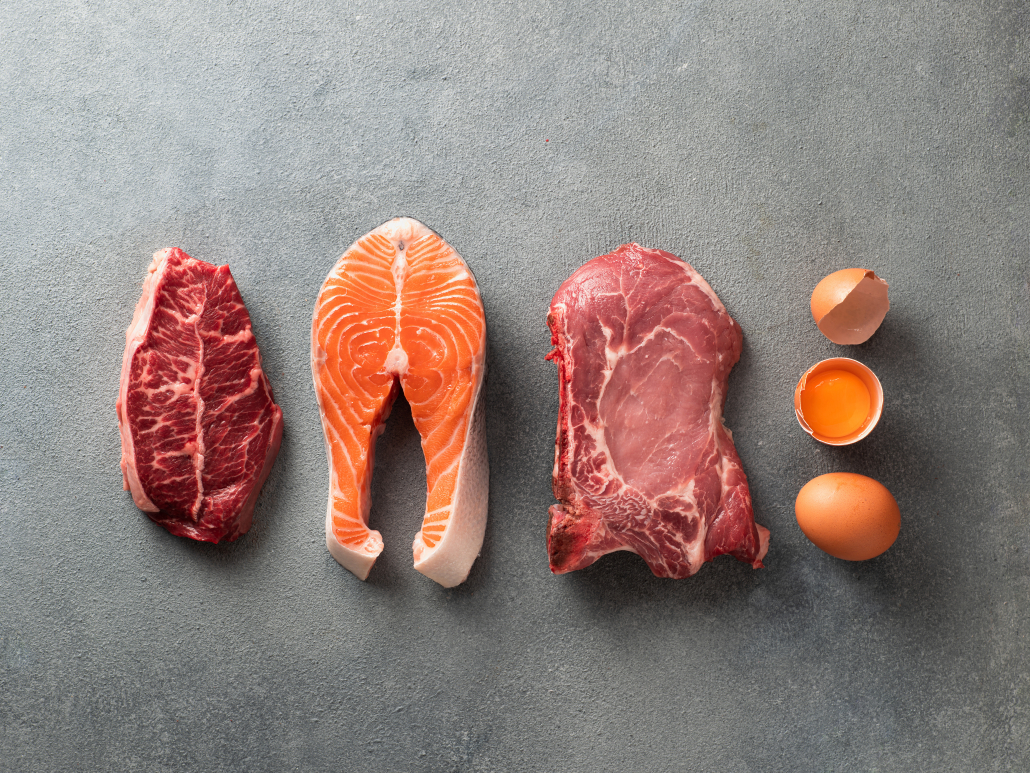
A well-formulated carnivore diet for fertility nourishes your body with an abundance of nutrient-dense superfoods loaded with fertility-boosting fats, vitamins, and minerals.
Many of these nutrients, like vitamin B12, vitamin A retinol, vitamin K2, and heme iron, are found only in meat.
But modern research is showing us how unfounded these fears have been.
- Total meat consumption correlates to greater life expectancy, independent of the competing effects of total calorie intake, economic affluence, urban advantages, and obesity [29]
- Saturated fat when consumed as part of a matrix of whole foods, including fresh meat, is healthy [30] [31] [32] [33] [34] [35] [36]
Liver & Steak
Liver and steak are both excellent sources of fat, protein, and bioavailable micronutrients.
Beef liver, in particular, is one of nature’s original superfoods. It’s a rich source of vitamin E, vitamin D, vitamin B12, and zinc. All of these nutrients have been shown to boost fertility.[56] [57] [58]
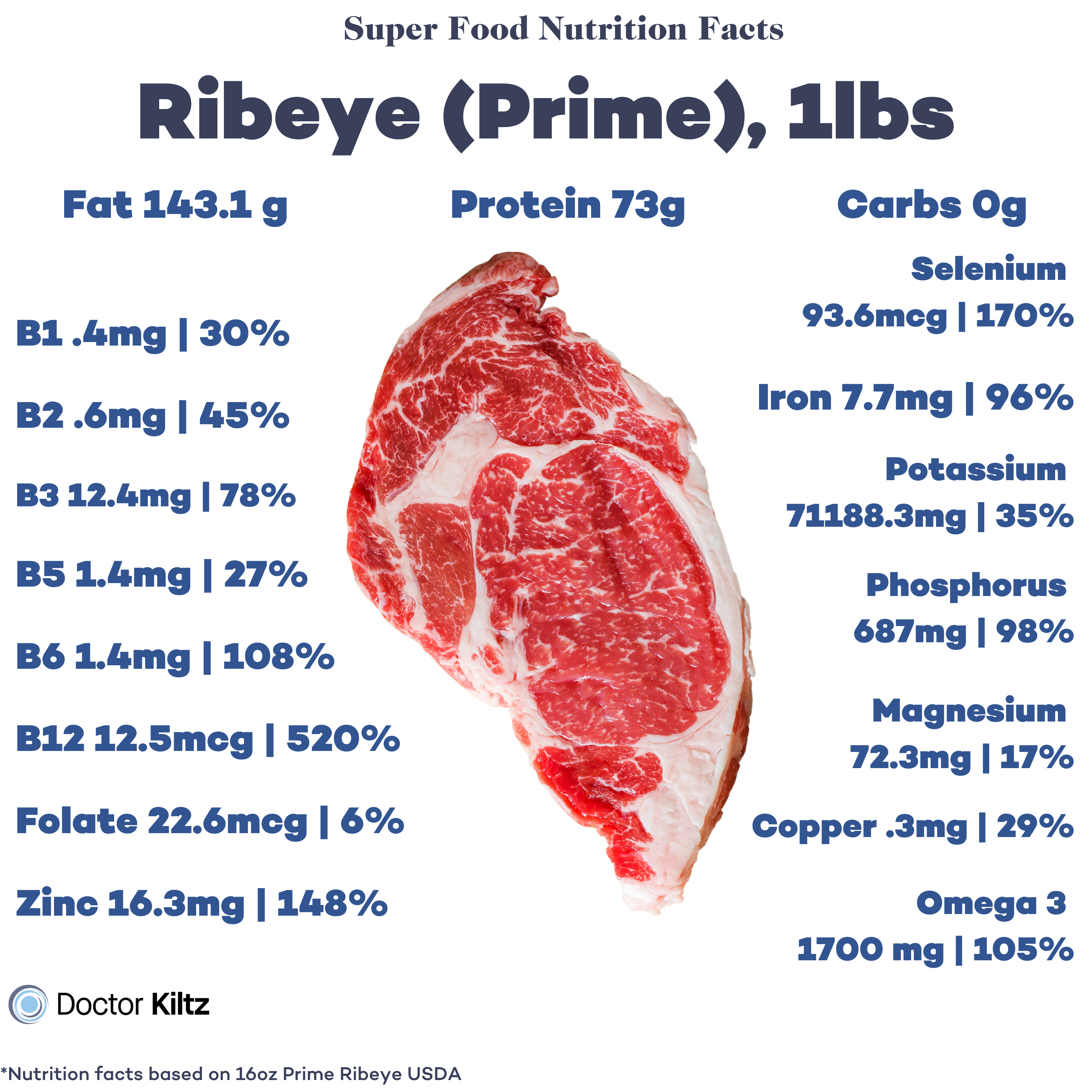
Ribeye steak and other fatty ruminant meats are chock full of healthy fats, B vitamins, zinc, selenium, and various nutrients only found in meat:
- Carnitine: supports male fertility, mitochondrial function, heart health and fertility [37]
- Taurine: This antioxidant can reduce glycation, reduce oxidative stress, and improve mental health. Functions to increase overall sperm quality, including sperm count, motility, and shape. [38] [39]
- Carnosine: Supports heart health, reduces glycation, and protects telomeres for anti-aging benefits [40]
- Creatine: improves cognition and protects against neurodegeneration. Supports athletic performance and heart health [41]
- Heme iron: One study showed that women who consumed iron supplements had a significantly lower risk of ovulatory infertility compared to women who did not use iron supplements. [22]
- Co-Q10: helps human cells generate energy. Higher levels of Co-Q10 in the blood have been shown to promote female and male fertility. A 2018 study found that pre-supplementation with Co-Q10 boosts fertility by improving ovarian response in women undergoing IVF treatment. [27] Co-Q10 has also been shown to improve ovarian reserve, egg quality, and embryo quality. A 2015 study showed that low levels of CoQ10 can result in oocyte deficits and age-associated causes of infertility. [28]
Eggs
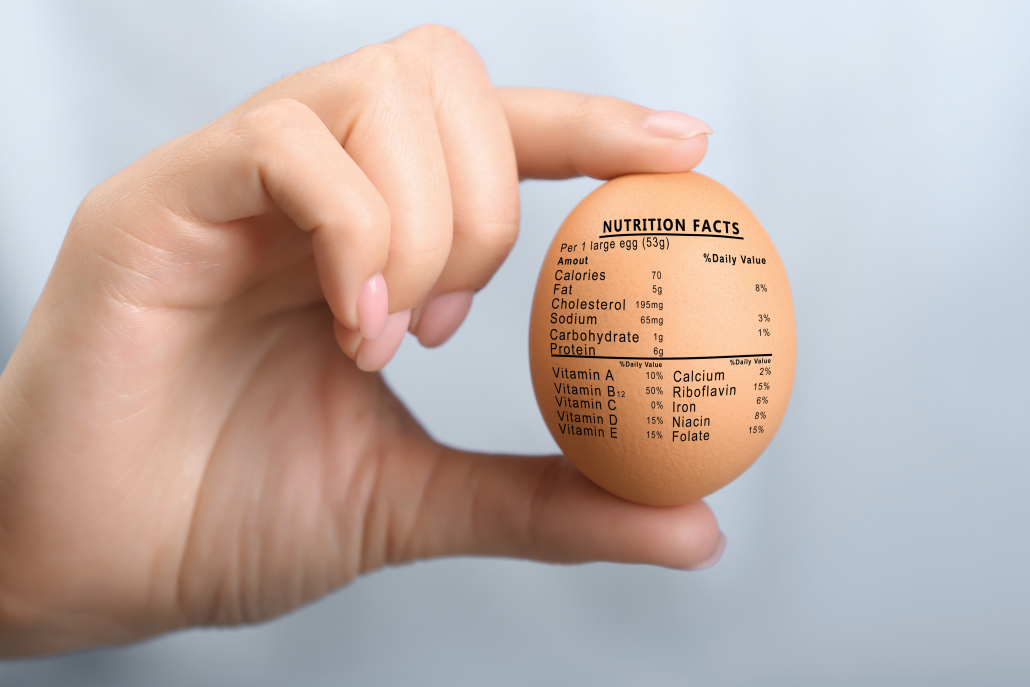
Eggs provide all the essential nutrients needed for developing life, including vitamin E, vitamin B12, choline, zinc, and essential fatty acids.
Studies show that vitamin E can affect sperm quality and motility. [61]
Eggs are also an excellent source of choline.
Studies show that choline supplementation may reduce the risk of certain birth defects. [62]

Sufficient choline intake while pregnant also promotes [63]:
- Placental development
- Neurological development
- Fetal growth and differentiation
- Reduced risk of chronic diseases later in life
Fatty Fish and Seafood

Fatty fish are one of nature’s best sources of omega-3 fats.
In males, omega-3s assist with sperm production. In women, they help maintain reproductive cells called oocytes. [65]
Two large studies found that women consuming 600–800mgs of an omega-3 called DHA daily during pregnancy reduced their risk of early preterm birth by more than 40% in the US and 64% in Australia. [24]
For men lacking in DHA, sperm health and motility can be compromised [26]
Lets remember that 1/3 of infertility is exclusively male factor and that male fertility issues factor into at least 50% of all infertility.
Other studies have shown that omega-3s can improve ovulation, ovarian reserve, and overall fertility. [25]
Fatty fish like salmon are also high in vitamin D, which plays an important role in many aspects of reproductive health. [66]
Salmon is also a great source of iodine. Iodine is critical for both fertility and thyroid health. [67]
Studies show that people who are deficient in this nutrient have a 46% lower chance of getting pregnant. [68]
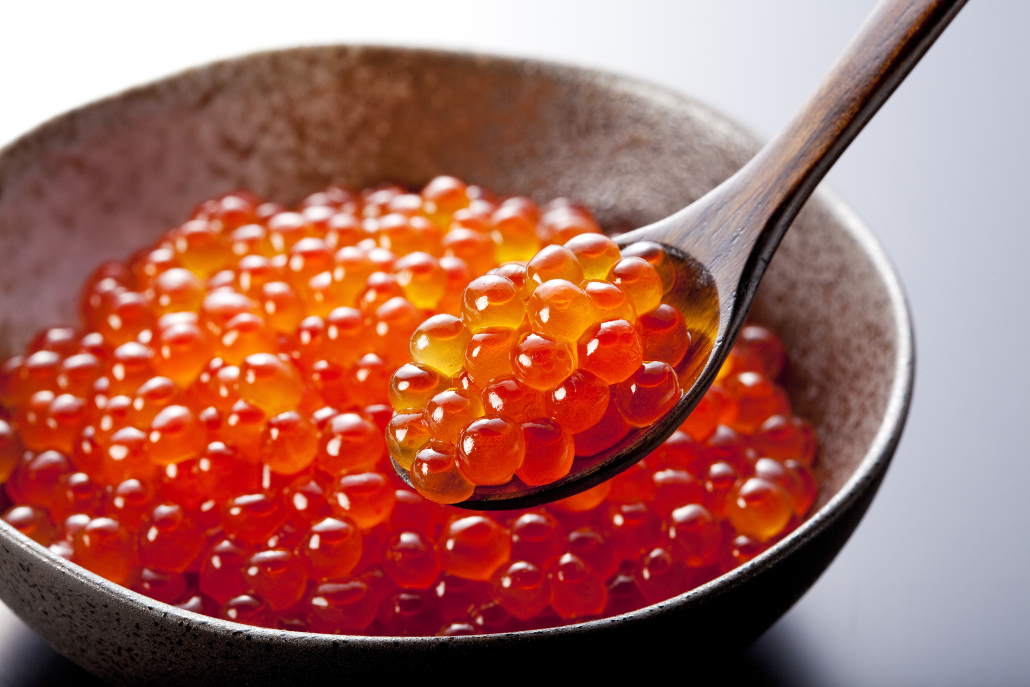
Salmon roe–the eggs of salmon– provides an extraordinary abundance of omega-3s. Not surprisingly, traditional cultures prioritized fish eggs for pregnant women. [69] [70]
Pork Belly
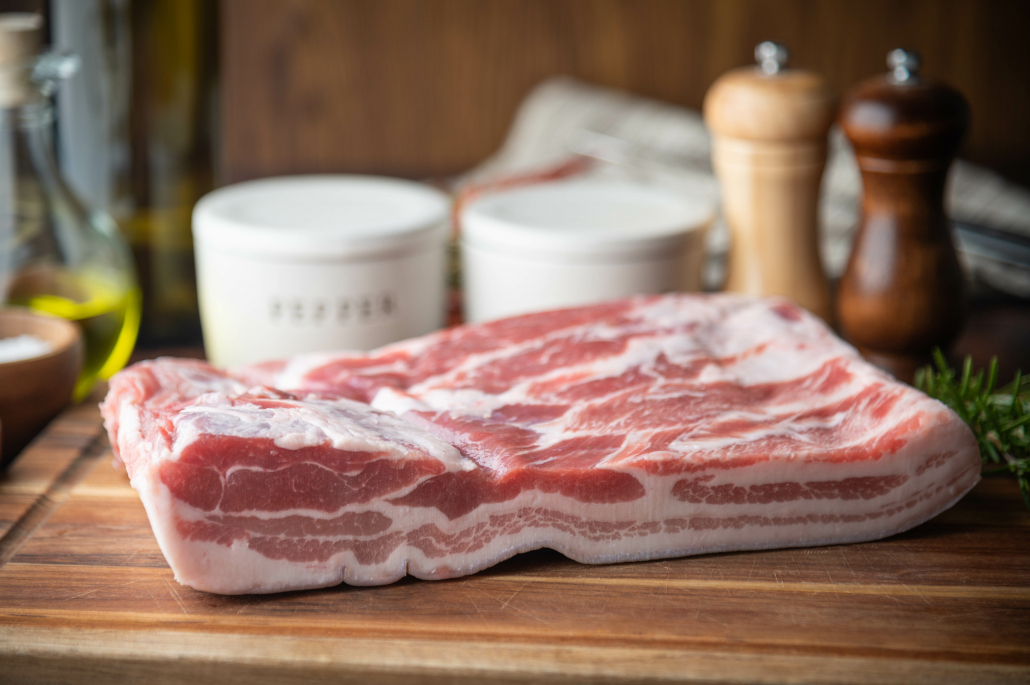
Pork belly is essentially fresh bacon. It’s a good source of B vitamins, selenium, and healthy fats.
Studies suggest that selenium deficiency can factor in miscarriage and semen quality. Selenium also supports the health of follicular fluid surrounding a woman’s eggs. And it can improve semen quality when combined with vitamin E. (28 31 32)
Butter and Full-Fat Dairy
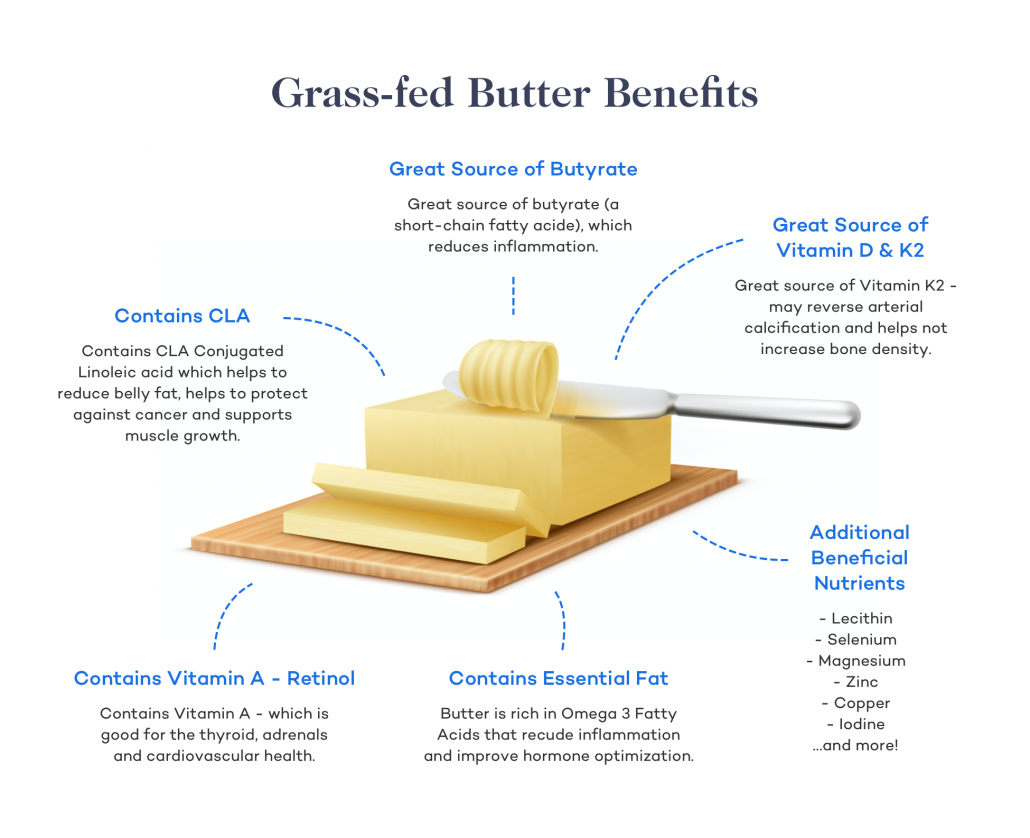
Butter offer numerous benefits thanks to nourishing fats, vitamins, and cholesterol.
As mentioned above, cholesterol thyroid converts cholesterol into important reproductive hormones. Cholesterol is also a component in breast milk. [73] And it is essential for your baby’s healthy growth and development. [74]
Butter is also a good source of vitamin A retinol. Just two tablespoons (28 grams) of butter supplies 22% of your RDV [3]
| Amount | % Daily Value | |
| Per tbsp (14.8 g) serving | 97 mcg RAE | 11 % |
| Per 100 grams | 684 mcg RAE | 76 % |
Vitamin a plays a critical role in fertility for both men and women.
In women vitamin A initiates meiosis (cell division) during the formation of the embryo. And in men it maintains the health of the male genital tract and sperm formation. 2
Full-Fat Dairy

Full-fat dairy like cream and cheese are also rich in fat, cholesterol, and vital nutrients like zinc, choline, selenium, vitamin A, vitamin D, and vitamin K2. [76] [77]
Full-fat dairy also provides calcium, which supports fertility in both sexes. [80]
Aged Cheese
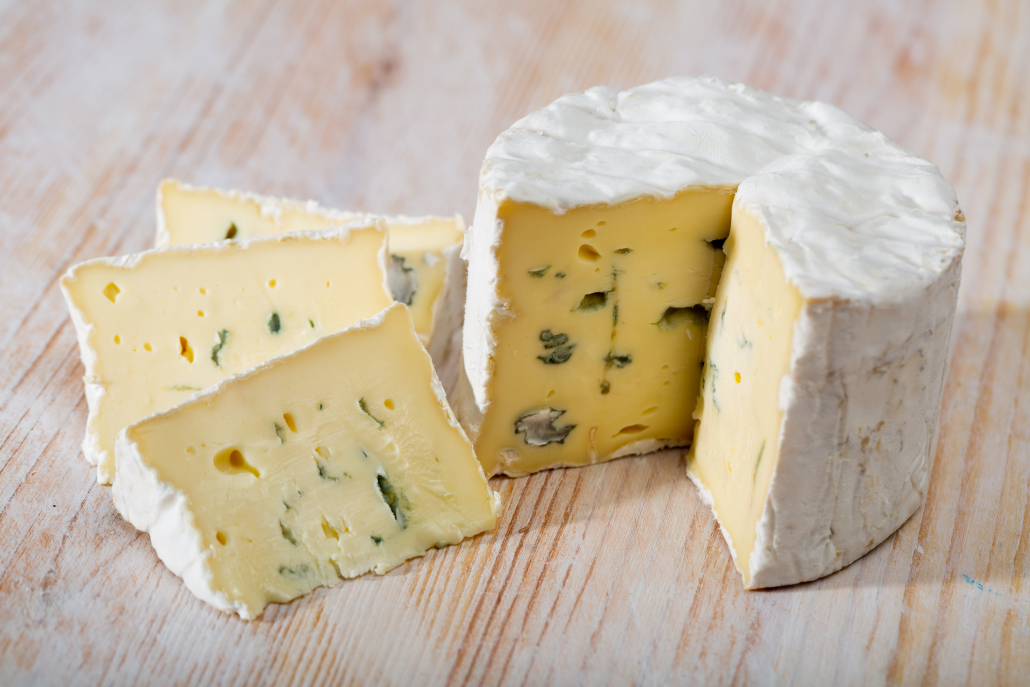
Aged cheeses, like cheddar, parmesan, and especially blue cheese, are rich in fertility-boosting proteins known as bioactive polyamines. [82]
In men, polyamines have been shown to improve sperm health. [83] Meanwhile, in women, these compounds can improve egg health, especially in women over 35.[84]
A Note on the Healthiness of Fat
Since the 1960s butter, cheese, and saturated animal fats have been framed as public health enemy number one.
This has been a dangerous mischaracterization, and modern science is setting the record straight–that butter and animal fats are indeed, a healthy part of our diets.
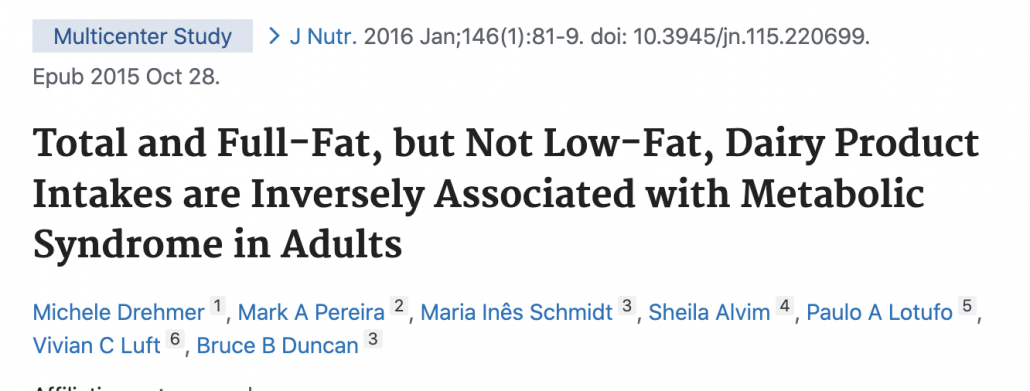
Researchers of the above study conclude: “Total and especially full-fat dairy food intakes are inversely and independently associated with metabolic syndrome in middle-aged and older adults, associations that seem to be mediated by dairy saturated fatty acids,” concluded one 2016 study. “Dietary recommendations to avoid full-fat dairy intake are not supported by our findings.” [81]
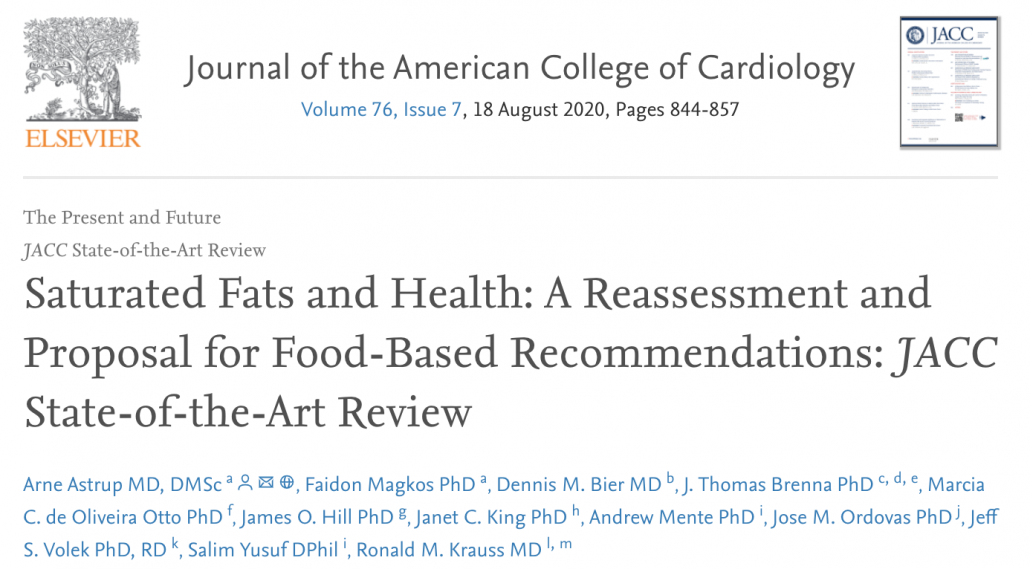
Based on the numerous studies showing no link between saturated fat and cardiovascular disease risk, stroke, and cancer, the above British Medicine Journal editorial review, including 19 BMJ researchers, called for a retraction of WHO guidelines for reducing saturated fat. [2]
The researchers state that “Whole-fat dairy, unprocessed meat, eggs, and dark chocolate are SFA-rich foods with a complex matrix that are not associated with increased risk of cardiovascular disease. The totality of available evidence does not support further limiting the intake of such foods.” [1]
Foods to Eliminate on Carnivore Fertility Diet
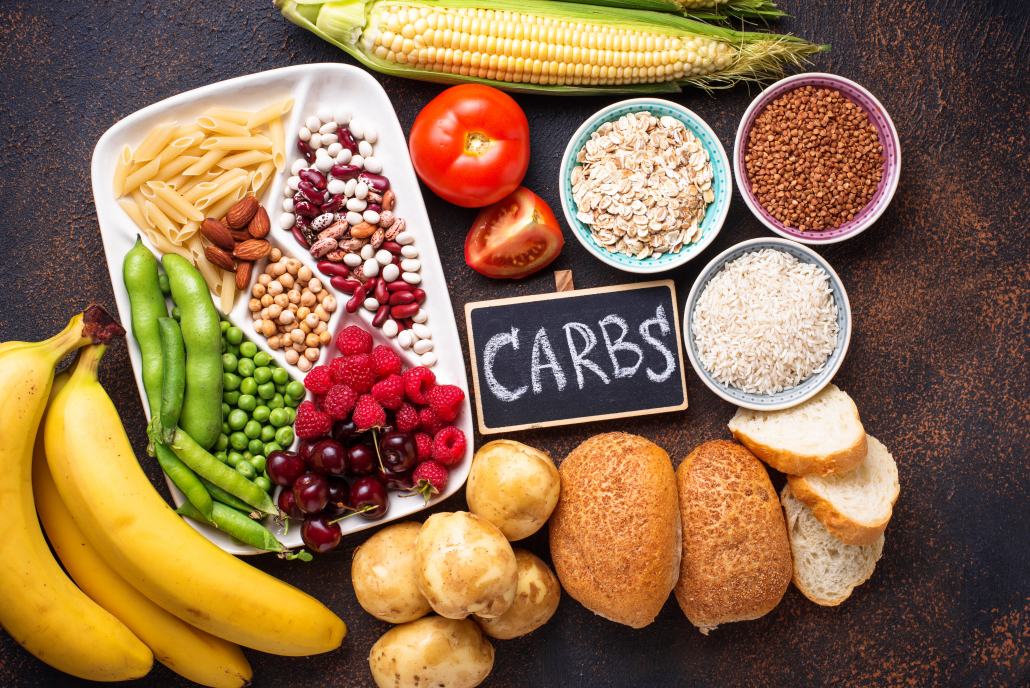
The carnivore diet for fertility eliminates most processed foods, high-carb foods, and plant foods including:
- Pasta
- Bread
- Yogurt
- Milk
- Seeds
- Nuts
- Chips
- Most fruits
- Most veggies
- Seed and vegetable oils like canola, sunflower, rapeseed, corn, soy, and peanut oil
- Alternative nut and grass milks–almond, hemp, rice, soy, oat etc.
On carnivore, you will also stay away from lean meats while choosing grass-fed, all-natural meats when available and if your budget allows.
Most of us, most of the time, don’t eat junk and high-carb foods because we’re hungry. We eat junk because we’re tempted. It’s easy, convenient, already prepared, or just a few microwaved minutes away, and it feeds our sugar addictions.

The key to making healthy food decisions isn’t about exercising more willpower. It’s about reducing the decisions we have to make. We also know that the more decisions we have to make the poorer we are at making healthy choices.
So the first step on a carnivore diet for fertility is to clear your house of every single non-carnivore food that calls to you.
Think of it this way. Would you rather wage a battle against chips and cookies 24/7? Or would you rather silence your cravings for the few seconds it takes you to pass the junk food aisle in the supermarket.
If you find it difficult at first, stick with it. A diet high in fatty, whole foods is extremely satiating and crushes hunger cravings.
Food to Avoid: Alcohol
Alcohol is one of the most important foods to avoid if you’re trying to get pregnant.
Mothers who drink alcohol during pregnancy risk birth defects, low birth weight, and other complications. [100]
Alcohol can damage male fertility by shrinking the testes, reducing sperm motility, and lowering testosterone levels. [101]
All in all, alcohol should be avoided by both sexes when trying to get pregnant.
The Carnivore Diet for Fertility: The Bottom Line
The carnivore diet for fertility works to improve fertility for both men and women through various mechanisms.
- Eliminates plant toxins
- Eliminates sugar
- Eliminates excess fiber
- Provides an abundance of healthy fats, cholesterol, and fertility-boosting nutrients.
All of these factors dramatically reduce inflammation, which Dr. Kiltz identifies as the root cause of most instances of infertility.













